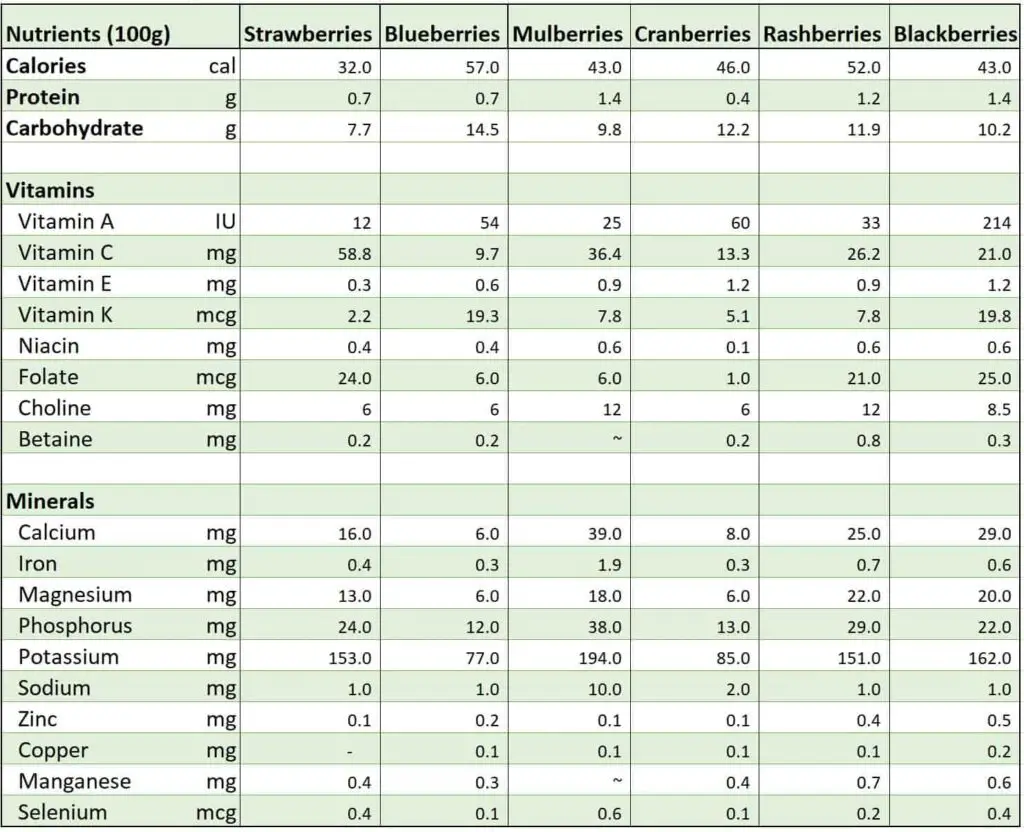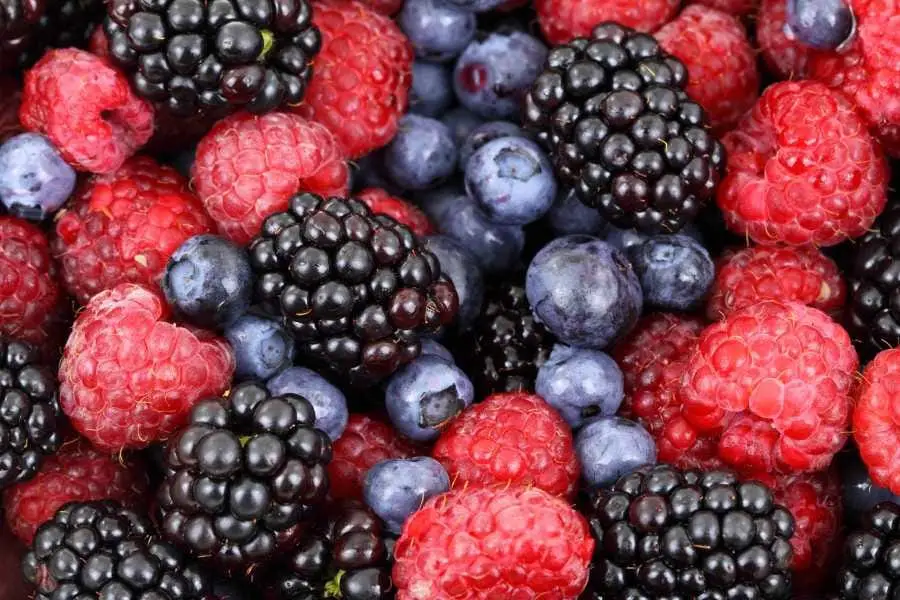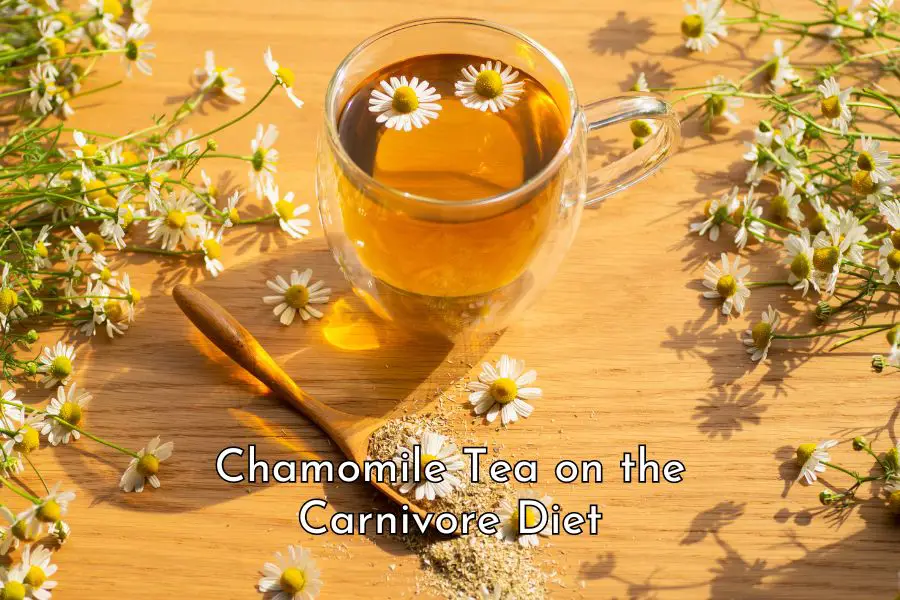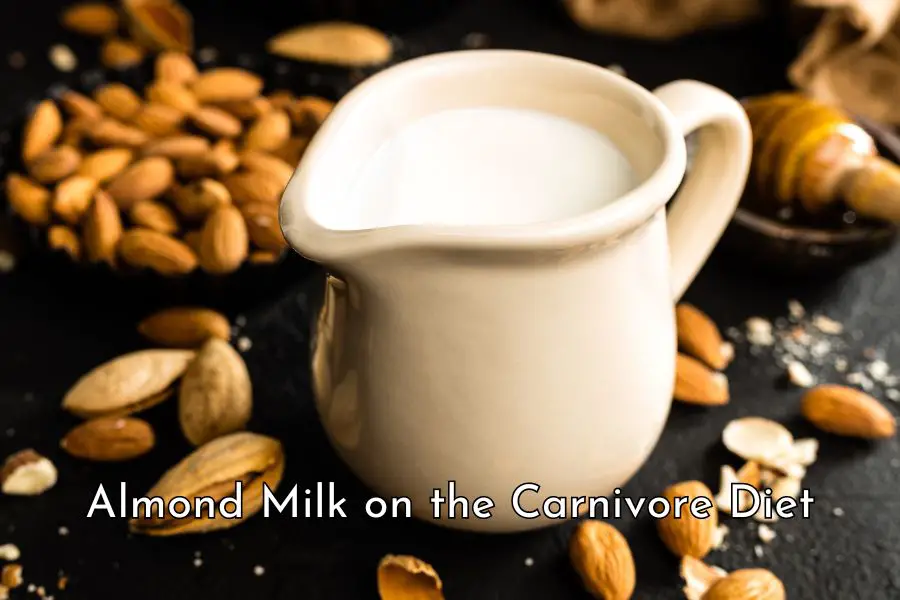Berries are considered low sugar and low toxin fruits and some people add them to their carnivore diet, but should you really eat berries on the carnivore diet? This is the question we will explore in this post.
It’s okay to add berries to your carnivore diet because they can help meet vitamin C requirements easier. In addition, they can also help maintain metabolic flexibility and their antinutrients may provide a form of beneficial dietary acute stressors.
However, some berries can be high in oxalate and salicylate and some conventional berries are also heavily sprayed with chemicals. Eating them too much can also kick you out of ketosis. Therefore, berries should be consumed occasionally and in moderation only.
Read on to find out in more detail the reasons for the above recommendations including nutrition in berries, which berries are particularly high in oxalate and salicylate, and which berries are the most sprayed with pesticides.
Nutrition in berries
The table below shows the nutrition of some common berries.
Berries are generally very low in calories and low in sugar.
They can be a good source of vitamin C for people on the carnivore diet. For example, a 100 serving of strawberries provides 59 mg of vitamin C, more than the estimated 10 mg needed to prevent scurvy.
In addition, they also provide small amounts of some other vitamins and minerals. However, this is probably not the goal for those who are on the carnivore diet. Meat is nutrient-dense and if you eat nose-to-tail, you will get all the nutrients you need from your food.

Can you eat berries on the carnivore diet?
It’s okay to add berries to your carnivore diet because they can help meet vitamin C requirements easier. In addition, they can also help maintain metabolic flexibility and their antinutrients may provide a form of beneficial dietary acute stressors.
1. Berries help meet vitamin C requirement easier
Vitamin C plays a very important role in the human body. It is required for the synthesis of collagen, the most abundant protein in the human body that can be found in blood vessels, skin, connective tissues, bones, and muscles. It is also required in the synthesis of neurotransmitters such as dopamine, norepinephrine, and epinephrine, as well as L-carnitine.[1]
Vitamin C is considered essential because your body can’t make it and must get it from dietary sources.
The current daily allowances of vitamin C recommended by the Institute of Medicine are 90 mg for males and 75 mg for females.[2]
Because on the carnivore diet, there is a very little amount of carbohydrates to compete with vitamin C for absorption, you don’t need as much vitamin C as you would if you are on a high-carbohydrate diet. Scurvy is unheard of in many societies subsisted on a heavily meat-based diet.[3]
As discussed in detail in this post, if you eat lightly cooked meat and incorporate organ meat on your carnivore diet, you will have no problem meeting the 10mg of vitamin C a day to prevent scurvy.
However, because vitamin C can be easily destroyed by heat, if you don’t incorporate organ meat (which has a decent amount of vitamin C) and prefer to eat everything well-cooked, there is very little vitamin C left in your meals.
Although vitamin C deficiency and scurvy are rarely reported amongst carnivore communities, if you prefer to be on the safe side and have no problem with eating a bit of fruit, it’s definitely fine to have some berries now and then.
A 100 gram serving of any of the above berries should give you enough vitamin C to prevent scurvy.
2. Berries can help maintain metabolic flexibility
If you are like Mikhaila Peterson who can have a severe reaction to just a little bit of seasonings, then you have all the reasons to stay away from plant food.
However, if you can handle plant food well, it’s definitely okay to add some berries to your diet because they can help you maintain metabolic flexibility.
If you go strict carnivore for too long, you won’t feel very well or even feel very sick if you suddenly have to eat a bit of fruit or vegetables.
However, if you add a small amount of seasonal fruit and vegetables to your diet a few times a week, your metabolic flexibility is maintained. If you suddenly have to rely on mostly plant food to survive, you’ll fare much better than those who have always been on a strict carnivore diet.
Our ancestors ate mostly meat but they were definitely not strict carnivores having descended from plant-eating primates. They would have eaten plant food for survival if meat were not available.
It is also generally more socially acceptable and easier to blend in if you go, for example, 90% carnivore rather than 100% carnivore.
3. Berries’ antinutrients can be a form of beneficial dietary acute stressors
When you consume plant food, the anti-nutrients in it actually cause inflammation in your body. In response, your body produces its own antioxidant called glutathione to reduce inflammation.
Occasional exposure to these anti-nutrients can be a form of beneficial acute stressor that can help make your body adapt and become more resilient and stronger. Of course, too much and too often, it will become a form of chronic stressors instead.
If you can’t handle even a small amount of plant foods for health reasons, there are a number of alternatives to getting those acute stressors to build a stronger body from non-plant sources (see this post for further detail):
- Physical exercise
- Cold exposure
- Heat exposure
- Immersing in nature.
Why berries should be consumed in moderation only?
Some berries can be high in oxalate and salicylate and some conventional berries are also heavily sprayed with chemicals. Eating them too much can also kick you out of ketosis. Therefore, berries should be consumed occasionally and in moderation only.
1. Some berries can be high in oxalate
Some berries can be high in oxalate.
Raspberries are known as a high oxalate fruit.[4]
Blackberries and blueberries are classified as moderate oxalate by Tufts Medical Center and the Oxalosis and Hyperoxaluria Foundation, while the University of Pittsburgh Medical Center counts them as high in oxalate.[5]
Black currants (a type of berries) are moderate oxalate fruit and red currants (also a type of berries) are a high oxalate fruit.[6]
Elderberries are very high in oxalate as well.[7]
Oxalates or oxalate acids are anti-nutrients that plants produce to protect themselves. Oxalates bind with calcium and other minerals to form oxalate crystals, the main ingredient in kidney stones. In addition, oxalates can contribute to a variety of other health problems including inflammation, autoimmunity, mitochondrial dysfunction, mineral balance, connective tissue integrity, urinary tract issues, and poor gut function.[8]
If you have kidney stones or kidney problems, it may be best to avoid those berries altogether.
2. Some berries can be high in salicylate
Some berries can be high in salicylate which is a phenolic compound that plants produce to protect themselves. [9]
In a comprehensive study on salicylate content of 333 food items, Swain et al (1985) found that most fruits contain considerable amounts of salicylate and that most berry fruits are significant sources of salicylate, with a range from 0.76 mg/100 gm for mulberries to 4.4 mg/100 gm for raspberries.[10]
They also found that dried fruits have relatively high salicylate contents compared to their fresh counterparts and heat processing for canning does not seem to materially affect the salicylate content of fruit.
Some people can have salicylate intolerance and symptoms in those cases include headaches, migraines, respiratory irritation, gastrointestinal discomfort, irritability, joint pain, swelling and fluid retention, mouth ulcers, sore and itchy eyes, etc. [11]
It is worth noting that the Feingold Diet, a form of elimination diet to help children with ADD and ADHD, excludes foods containing artificial colorings, artificial flavorings, and natural salicylates.
If you are salicylate intolerant, it’s clear that you need to stay away from all berries.
3. Conventional berries may be heavily sprayed with chemicals
Some conventionally farmed berries are also laden with chemicals.
Strawberries are found to be one of the most sprayed fruits you can eat.
According to the Environmental Working Group’s 2021 Shopper’s Guide to Pesticides in Produce, strawberries top their Dirty Dozen list, a list of foods with the most pesticides. Other fruits in the Dirty Dozen list include nectarines, apples, grapes, cherries, peaches, and pears.[12]
Blueberries and raspberries are numbers 16 and 22 on the list of 46 fruits tested so they are less sprayed compared to strawberries.
If you can’t get organic berries, you should definitely limit the consumption of these berries.
If you have a backyard, it’s a good idea to plant some fruit trees like berries, apples, plum, orange, and lemon. You will have access to organic fruits and have no problem eating with the season.
4. Eating too much berries can kick you out of ketosis
Berries are low in sugar but eating them too much can kick you out of ketosis.
Blueberries have the highest carb content amongst the common berries listed above.
A 100 gram serving of blueberries delivers 14.5 grams of carbohydrates. If you stay with just one serving, it is fine. But if you add other vegetables like squash or sweet potatoes, those carbs can add up very quickly to more than 50 grams and kick you out of ketosis.
If ketosis is your goal for medical, weight loss or other reasons, you need to be mindful of their carb contents.
Conclusion
As you can see from above, plants really don’t want to be eaten.
Even some fruits like berries which are often considered low toxin food and safe to eat still contain some potentially troublesome compounds for some people.
Even if you can handle plant food and are okay with berries, eat them sparingly and preferably with the season.
If you have problems tracking which particular fruits are in season at any particular point in time, print out a list of about 30 fruits and rotate through the list.
If you find this post helpful, please consider sharing this post with your family, friends, and followers, that would be much appreciated.
Please also check out my library of articles on the carnivore diet here which is updated regularly.
Disclaimer: The information in this post is for reference purposes only and not intended to constitute or replace professional medical advice. Please consult a qualified medical professional before making any changes to your diet or lifestyle.





